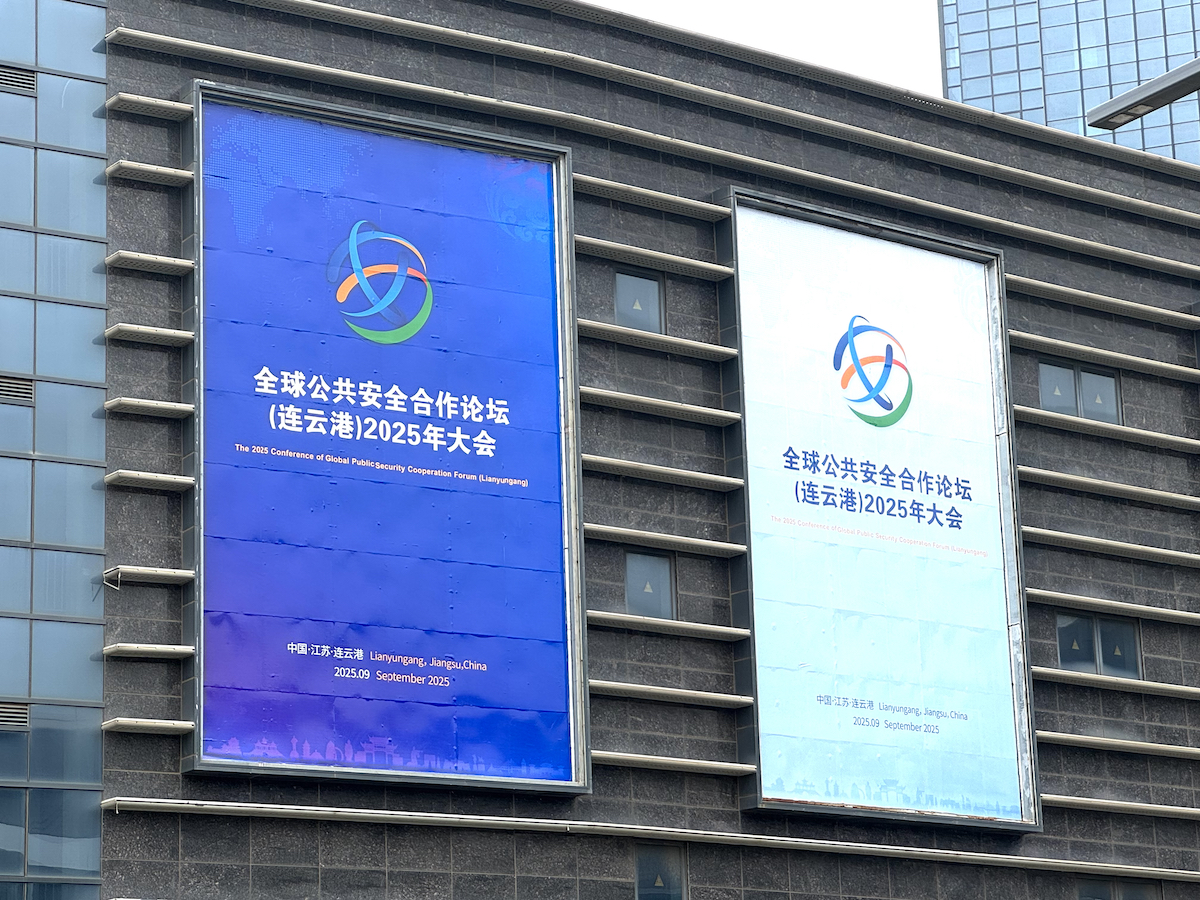China10:18, 16-Sep-2025
By Zhou Jiaxin
In a world increasingly challenged by transnational crimes – from cyber fraud to drug trafficking, multilateral actions in promoting public security are more required than ever before.
Experts from the United Nations warned that traffickers in regions like Southeast Asia are integrating with other illegal markets, noting poor communities are suffering the brunt of these activities.
 The 2025 Conference of Global Public security Coopeation Forum, Lianyungang, Jiangsu Province, east China. /CGTN
The 2025 Conference of Global Public security Coopeation Forum, Lianyungang, Jiangsu Province, east China. /CGTN
Speaking at the Global Public Security Cooperation Forum in Lianyungang, east China, last September, Masood Karimipour, regional representative of the United Nations Office on Drugs and Crime (UNODC), cited the Golden Triangle – where Thailand, Laos and Myanmar meet – as an example of how traditional organized crime, such as drug production and trafficking, has evolved into cross-border partnerships with other criminal groups.
They all share one modus operandi: setting up in areas where governance, law enforcement and cross-border cooperation are weak, Karimipour told CGTN.
In the meantime, Karimipour praised China for its leadership in bringing countries together and creating platforms to strengthen information sharing and joint operations, expressing pride in being a partner in promoting multilateral cooperation.
Widely recognized as one of the safest countries in the world, China continues to provide a robust framework for advancing multilateralism, most notably through its successive proposals of the Global Security Initiative (GSI) and the Global Governance Initiative (GGI).
Multilateral actions
By prioritizing practical cooperation over unilateral action, China advocates for an inclusive, fairer global governance system.
Both GSI and GGI emphasize sovereign equality, rule of law and multilateralism as pillars of global governance, calling for innovative, action-oriented approaches to address complex challenges like cybercrime, drug trafficking and transnational fraud. The GGI also upholds the people-centered approach as the underpinning value of global governance, addressing a greater sense of safety through more effective responses to humanity's common challenges.
China, Laos, Myanmar and Thailand in recent years have exemplified collaboration on the mission of the Mekong River Joint Patrols. The 154th patrol this June involved 200 officers and focused on intercepting drug shipments and raising public awareness through community outreach. This initiative demonstrates how common challenges can be addressed through joint operations and intelligence-sharing.
Cybercrime is a borderless threat that demands coordinated responses.
China, Myanmar and Thailand have established a regular mechanism to step up crackdowns on telecom and online fraud in hotspots such as Myawaddy. Dismantling telecom fraud networks has also become a key part of China's law enforcement cooperation with international partners.
A senior official from China's Ministry of Public Security said at a press conference in July that these efforts have led to the dismantling of more than 2,000 overseas fraud hubs and the arrest of over 80,000 suspects in the past five years. The official also warned, however, that the situation regarding overseas telecom fraud remains "severe and complex."
One major barrier to tackling cross-border crime is the lack of unified legal standards.
China works closely with the UNODC and other multilateral bodies to institutionalize cooperation. In May, Vietnam and the UNODC co-hosted a conference on implementing the UN Convention against Transnational Organized Crime (UNTOC), highlighting the Asia-Pacific region's role in shaping global policies. Likewise, China's participation in the International Association of Prosecutors' annual meeting underscored its commitment to strengthening judicial collaboration against cybercrime.
Technological innovation as a force multiplier
China supports the UN Convention against Cybercrime and advocates for unified standards on extradition and digital evidence. It stresses that international rules should be formulated through broad participation and consultation among all Member States under the UN framework, to build an Internet governance system rooted in multilateralism, democracy, and transparency.
At the 2025 UN Crime Congress, China proposed leveraging artificial intelligence and big data to enhance forensic capabilities, while also promoting ethical governance. Through its Digital Public Security Platform, China integrates AI and blockchain to track illicit financial flows and cyber threats. The system, shared with partner nations, enables rapid analysis of cross-border crime patterns.
Meanwhile, China's National Cybersecurity Initiative emphasizes capacity-building, offering training programs for law enforcement agencies in Southeast Asia and Africa to strengthen digital forensic expertise.
Sharing the Future
As transnational crimes grow in scale and sophistication, China's commitment to collaborative and innovative solutions offers a model for global governance.
China's approach to transnational crime is rooted in the belief that security is interdependent. By sharing resources, technology and expertise, China and its partners are building a resilient ecosystem against criminal networks. The GSI and GGI provide a blueprint for this collective action, emphasizing dialogue over confrontation and cooperation over isolation.
This year, the Global Public Security Cooperation Forum (September 17-18) will feature eight thematic sub-seminars, including sessions on combating transnational crime, international drug control cooperation and counter-terrorism. These discussions will culminate in the release of the 2025 Annual Report and the Global Public Security Index Report (2025), key tools designed to support evidence-based policymaking and strengthen multilateral cooperation. The platform aims to spotlight priority areas, turning dialogue into action and fostering a shared future for global public security.
United News - unews.co.za